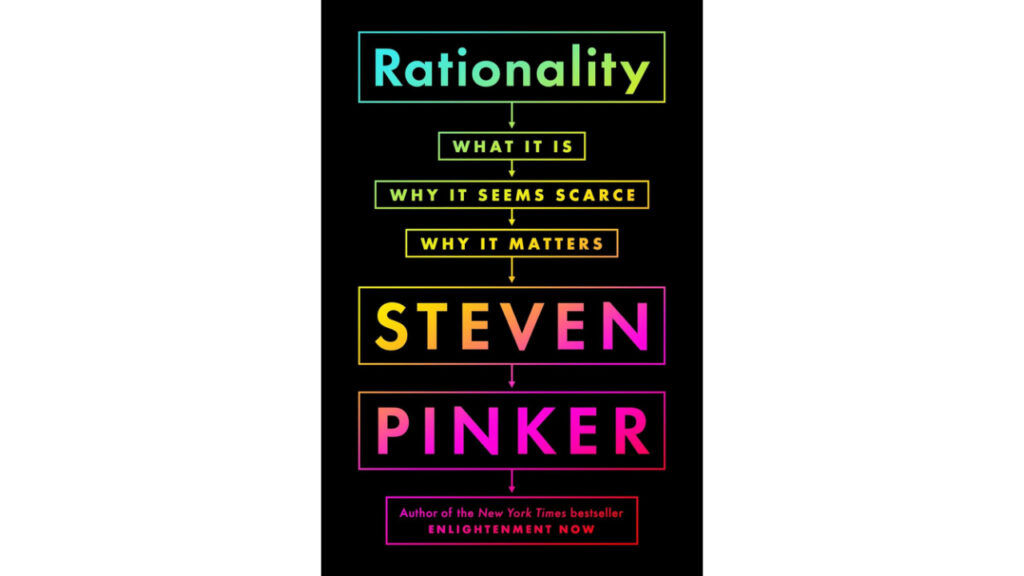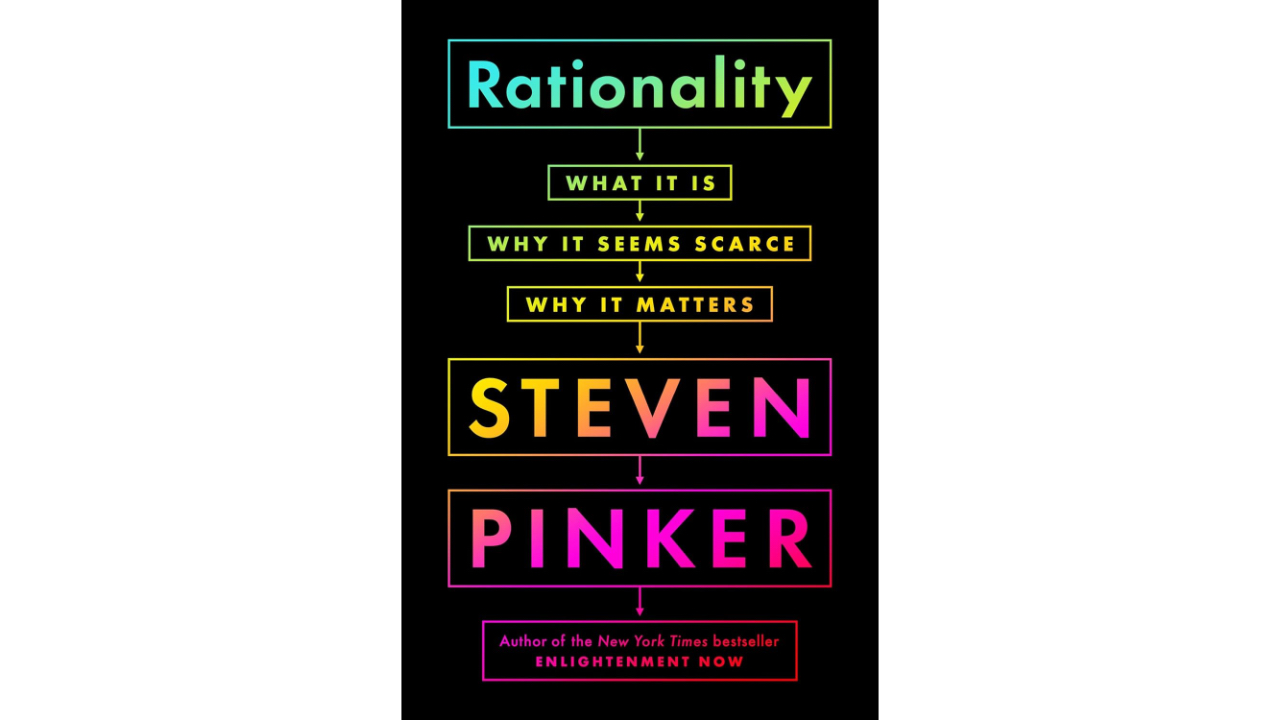Rationality by Steven Pinker – Harnessing Logic, Probability, and Critique
In Rationality by Steven Pinker, you get a masterclass on the machinery of sound thought, from Bayesian updating to game theory, packaged in bright prose and wry humor. Whether you’re battling confirmation bias or just craving a primer on probabilistic thinking, Rationality by Steven Pinker delivers practical insights with scholarly heft.
Highlights
The Heart of Rationality: Tools for Thought
Pinker’s central thesis is that humans already think “rationally” in everyday contexts, tracking people, tools, and language, yet rarely employ the formal tools (like Bayes’s theorem or decision trees) that could turbocharge our reasoning. He starts by debunking the myth of the chronically irrational caveman mind, showing how our evolved intuitions serve us well in low-tech environments. From there, he introduces probability not as abstract math but as a guide to updating beliefs when new evidence comes in, illustrating with vivid examples such as medical testing and climate forecasts.
Next, he tackles correlation versus causation, arguably the most misunderstood concept in public discourse. Through historical vignettes (e.g., John Snow’s cholera investigation) and modern case studies (like fake-news propagation), Pinker quantifies how often people mistake mere association for causal influence. His quantitative assessments, such as error rates in misunderstanding statistical data, underscore why rigorous thinking matters, both for personal decisions and policy debates.
Finally, this section closes with decision-theoretic frameworks: expected value, risk-reward trade-offs, and utility functions. Pinker gives tangible measurements, expected-value calculations for vaccination decisions during Covid-19 and game-theoretic analyses of collective action problems, demonstrating that rationality isn’t just theoretical but directly tied to life-and-death stakes.
Beyond Basics: Society, Solidarity, and Spin
While individual tools are crucial, Pinker emphasizes that collective rationality demands social norms, peer review, transparency, rule of law, to mitigate “myside bias” and groupthink. He explores how scientific communities evolved structures to punish shoddy reasoning and reward replication, citing quantitative metrics such as reproducibility rates before and after reforms in academic publishing.
He then pivots to the darker side: how rational calculation of self-interest or tribal loyalty can yield societal irrationality. Through political case studies, election forecasting failures and echo-chamber dynamics, Pinker quantifies the societal cost of false beliefs, referencing survey data on vaccine hesitancy and conspiracy acceptance. This section underscores that rational tools must be embedded in institutions to scale beyond the individual.
Pinker’s signature wit appears in asides on Dilbert cartoons, Yiddish proverbs, and the occasional myth-busting of junk science. These bits, while secondary to the core frameworks, humanize the narrative and remind us that rationality thrives when it’s enjoyable, not just dutiful.
Untapped Corners: Style, Stance, and Scope
One aspect less discussed is Pinker’s stylistic evolution from Enlightenment Now to Rationality. Where the former celebrated data-driven optimism, the latter interrogates why, despite progress, irrationality persists. He’s more combative here, willing to critique both left- and right-wing ideologues, while maintaining his trademark readability.
Another point: Pinker’s treatment of morality through a rational lens. He argues that moral progress, abolition of slavery, recognition of rights, owed much to Enlightenment-era reasoning. He quantifies shifts in public opinion (e.g., polls on same-sex marriage) to show how argument and evidence can reshape moral norms, though skeptics may wish for deeper engagement with empathy and narrative’s role alongside logic.
Lastly, pinker’s bibliographic curation sets Rationality apart: he stitches together threads from Kahneman’s heuristics, Taleb’s risk analysis, and game theorists like Schelling, offering readers a one-stop advanced tutorial in critical thinking, an edge for anyone seeking to outthink the noise of 21st-century media.
Conclusion: Should You Read Rationality?

If you’re a lifelong learner craving rigorous yet readable guidance on sharpening your mind, Rationality is a must. The book combines Pinker’s empirical authority with actionable frameworks, ideal for anyone who values clarity over clickbait and evidence over echo chambers. Casual readers should brace for mid-book technical rigs, but those willing to engage will emerge better equipped to navigate complexity. In short, Rationality by Steven Pinker is best for thinkers who demand both depth and wit in their nonfiction diet.







